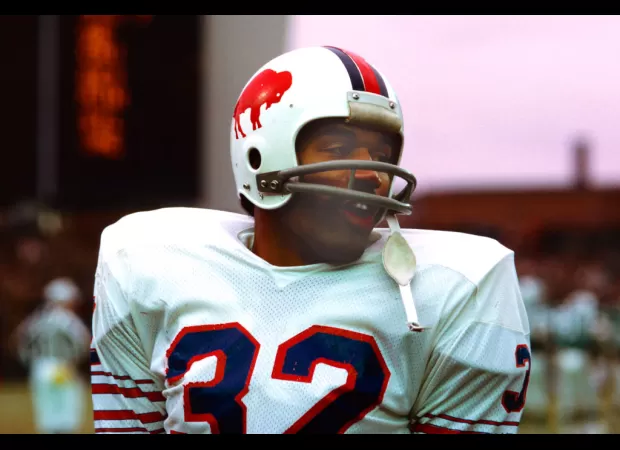O.J. Simpson's 1970 trial testimony may have hindered CTE research for many years.
Helmet maker Rawlings won $3.6 million in a lawsuit with help from Simpson's testimony.

More than 50 years ago, a devastating incident occurred in the world of football. A former running back was left paralyzed after a brutal helmet-to-helmet hit during a game. Understandably, his family sought justice and filed a lawsuit against Rawlings Sporting Goods, the manufacturer of the helmet. They claimed that the helmet was responsible for their loved one's paralysis. This legal battle took place in March of 1970, and it had a significant impact on the football community.
One of the key players in this case was O.J. Simpson, a well-known running back for the Buffalo Bills. He provided testimony in defense of Rawlings, ultimately helping them win the case against the injured player's family. According to reports from The New York Post, Simpson's defense of the helmet maker hindered the NFL's investigation into the dangers of chronic traumatic encephalopathy (CTE) for several decades. CTE is a degenerative brain disease that commonly affects athletes who have experienced repeated concussions and head injuries. It is typically diagnosed through an autopsy after the person's death.
The injured player in this case was Ernie Pelton, a high school football player from Sacramento, California. He was paralyzed during a game in 1967, and his family sued Rawlings for $3.6 million in damages. Simpson was called as a witness for the helmet manufacturer, and he appeared in court wearing the same helmet that he wore while playing for the Bills. He expressed his trust and belief in the helmet, stating that he was aware of the risks every time he stepped onto the field.
During the trial, Simpson was asked to read the warning label inside the Rawlings helmet that advised players to avoid purposeful contact. Simpson replied that he tried to avoid it, but it was not always possible. The attorneys for Rawlings argued that the future of football was at stake, and they questioned Simpson about his knowledge of the sport's inherent risks. Simpson responded by saying that anyone who played football would know the risks involved. He also acknowledged that he was aware of the potential for injury, as he had seen it happen to the injured player in this case.
Thanks to Simpson's testimony and charisma, the jury ruled in favor of Rawlings. Industry experts have claimed that this verdict helped protect the NFL from facing similar cases for many years. Robert Erb, who was the CEO of helmet manufacturer Schutt Sports for 12 years, stated that it would have been devastating for football if the injured player had won the case. He also mentioned that the NFL, NCAA, and high school football were all relieved by the verdict.
Helmet liability expert Kimberly Archie explained that this case made other attorneys afraid to take on similar cases. Simpson's testimony and the jury's ruling had a significant impact on the football industry, as it discouraged other potential lawsuits. Although Simpson was cremated and his brain was not tested for CTE, he admitted in a 2018 interview with The Buffalo News that he was concerned about the potential long-term effects of playing football. He stated that he had experienced memory lapses and difficulties finding words, which he found concerning.
In conclusion, this case involving O.J. Simpson and Rawlings Sporting Goods had a far-reaching impact on the world of football. It not only highlighted the dangers of repeated head injuries but also had significant legal and social consequences for the sport. It is a reminder that the safety of athletes should always be a top priority, and steps must be taken to prevent and address injuries such as CTE.






